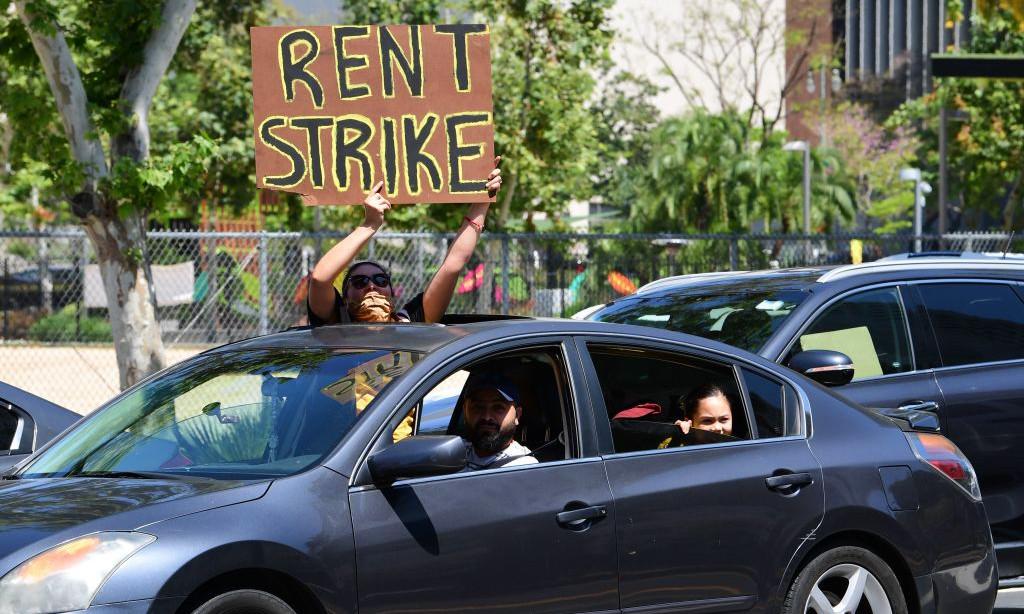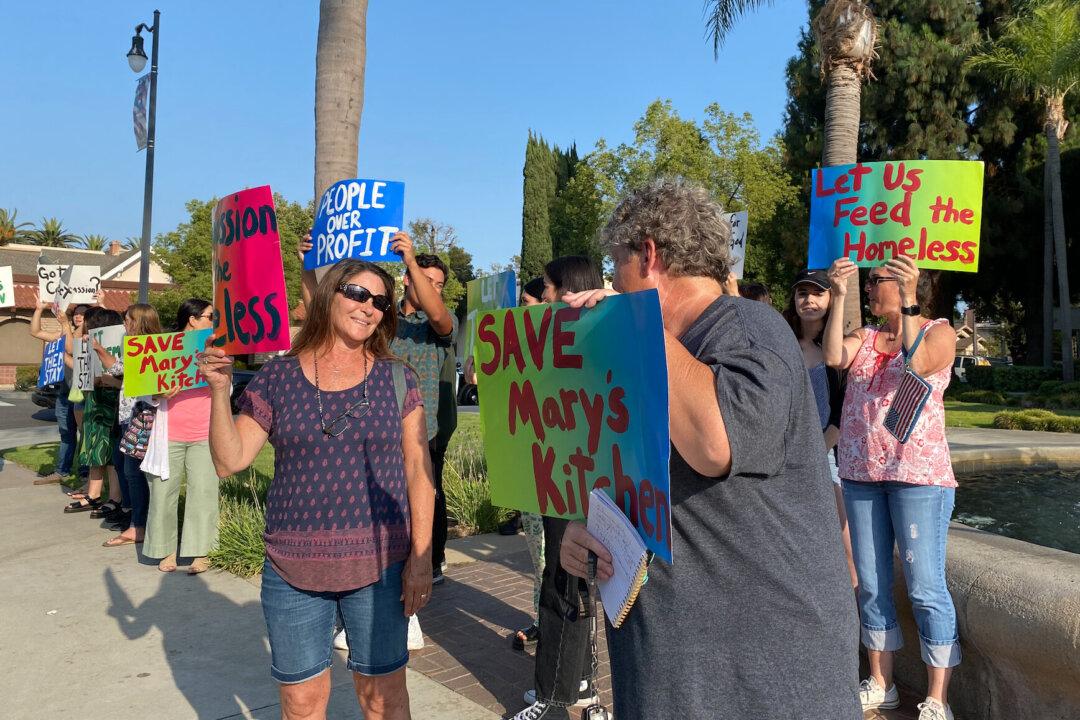Property owners in Los Angeles are concerned about calls for a June rent strike.
The Los Angeles Tenants Union (LATU) has been posting fliers on the streets “urging residents not to pay rent and to demand a rent strike,” one concerned property manager told The Epoch Times. The fliers were posted in close proximity to her property.





